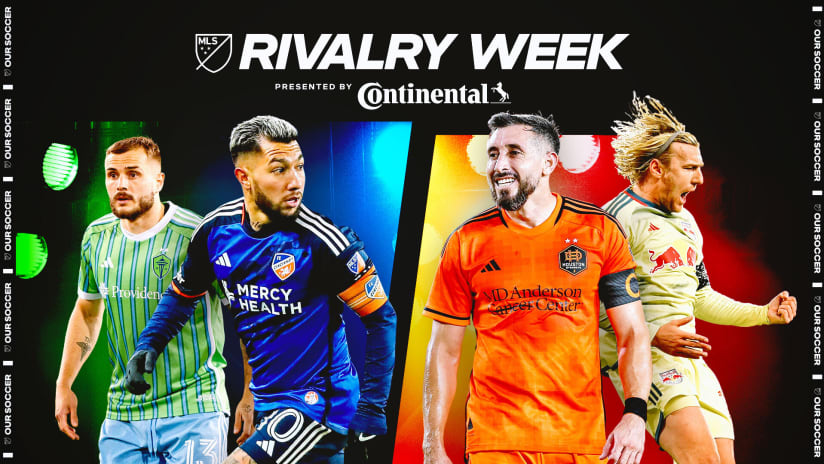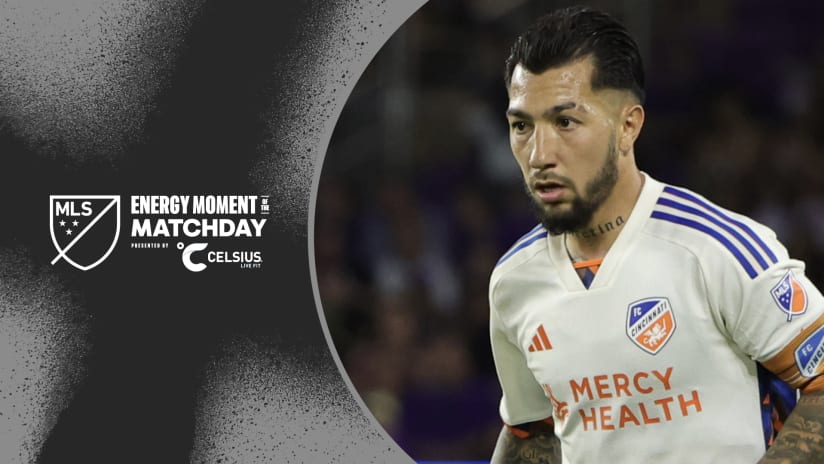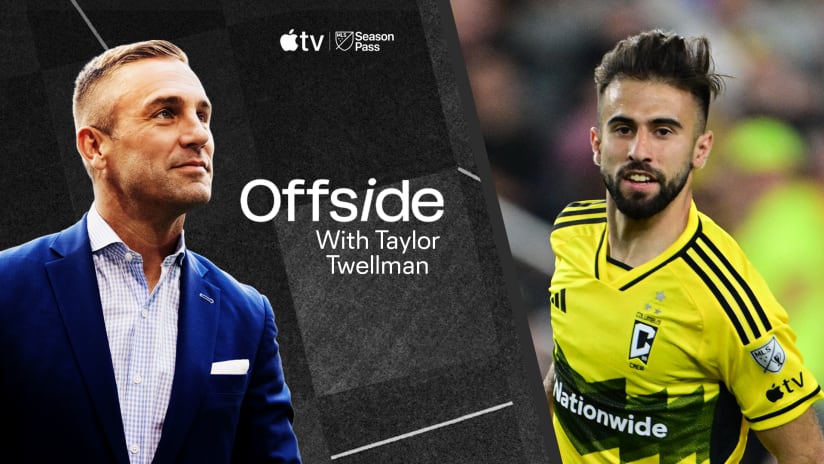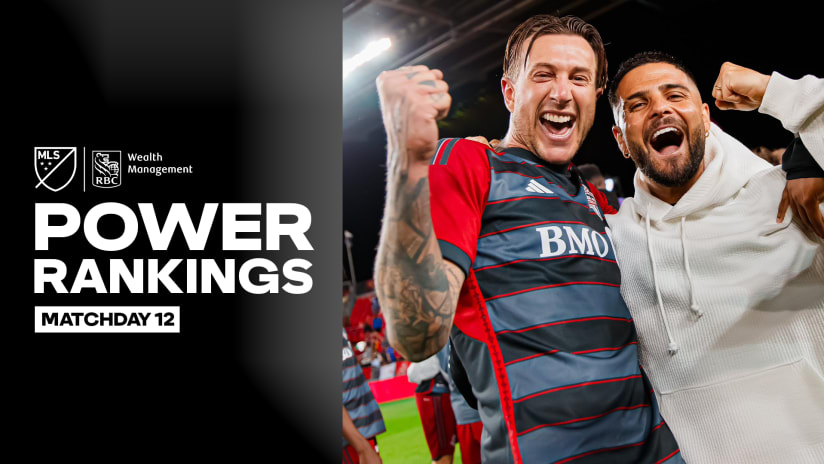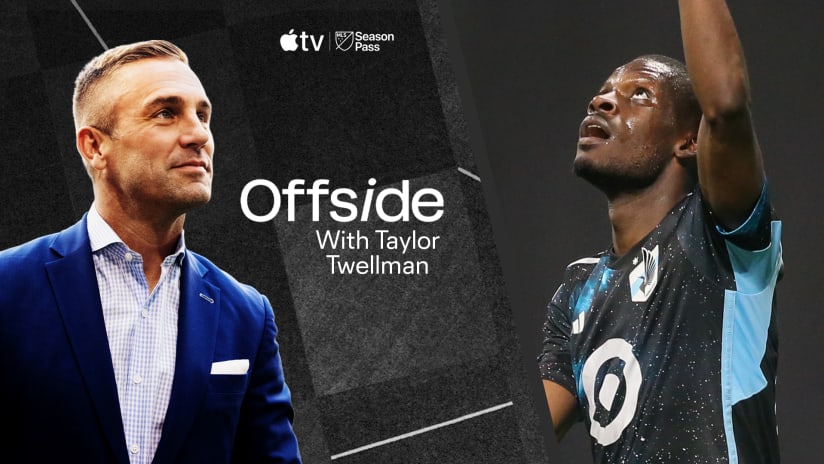It wasn't too long ago that once a player secured their place in their club's first 11, it was theirs. Well, it has now become clear how much MLS has changed, and that to compete among the elite, clubs must boast 14, 15, even 16 players that consider themselves first 11 candidates. Coaches need many options, not only related to matching up against an opponent's current style, but also to keep things competitive within their team. This is especially important as over the course of the year, players lose form, and while the best clubs cope with these situations as 'par for the course', the less competitive organizations are consistently prone to outright panic.
A terrific example of team depth and competitiveness relates to the 2004 MetroStars. Look at all the choices Bob Bradley has up front: Cornell Glen, Fabian Taylor, Sergio Galvan Rey, Mike Magee and John Wolyniec. If you train soft, on this side, you'll be lucky not to be listening to J.P. (Dellacamera) and Shep (Messing), come Saturday. Not that there's anything wrong with listening to the MetroStars' broadcasters work the games. Actually, J.P. and Shep call a very good game. But, I digress.
Wolyniec and the Fire's Nate Jaqua are two of the most valuable unknowns in MLS. They don't need to play on Saturday to help their clubs succeed. If they're not among their club's first 11, you can be certain that whoever is has earned that right.
What was ... Inexcusable excused absences.
Speaking of 'rights,' I'm not sure that MLS has a right to be upset when their single-entity structure is uncomfortably critiqued. For MLS is its own worst enemy when it comes to managing the single-entity concept.
My current discomfort relates to Dema Kovalenko's Memorial Day Weekend. When I read of Kovalenko being allowed to miss a league match - a key match versus a division rival - I quite honestly wanted to puke.
Now, lets back up, a bit, Kenny. Explanation needed.
OK, here is what happened - the short version. Kovalenko's club, D.C. United, gave the All-Star permission to spend the holiday weekend on the other side of the Atlantic, so as to participate in 'The Hristo Stoitchkov Testimonial Match.' This league's history of allowing players to bypass league matches to attend proms, graduations and weddings has made things difficult enough to stomach. But, now the league tells its fans that a regular season match isn't as important as a meaningless romp in the park? When is someone going to wake up and consider the paying $upporter$? Yes, the fans!
Why blame MLS? Didn't D.C. United make the decision? What does any of this have to do with the league's single-entity structure?
Well, this one might be a tad longer than the short version.
First of all, please accept that I am very familiar with the single-entity concept. In fact, I had prepared the original blue prints for U.S. Soccer, back in 1991. And believe me when I say that, at this time, I am not bragging about introducing the structure.
That I was thanked, and MLS elected to utilize 70% of the report, is fine. But it also means that they neglected the other 30% of the report. No, I did not include a section with how the single-entity structure deals with non-league affiliated testimonial matches during the regular season. But, it surely was clear that one of the key benefits of a strongly run single-entity league is that the structure should prevent obvious stupidity from ever being a consideration. Simply put, one individual's bad decision can make a group of intelligent people appear dumb.
I am sorry to say that the decision D.C. United made would likely have been copied by each of MLS' other nine teams, had they been in the same position. Players like to play for 'a players' coach.' Or in other words, players enjoy being spoiled. Upset your players - even rightfully so - and you get a bad reputation. I understand this - first hand, unfortunately. This is not a sad statement related to just MLS or soccer, it is a sad statement for professional sports in general.
Bottom line - MLS should not have put D.C. United in the position of determining whether or not Kovalenko be permitted the mid-season vacation. I'm not even sure that Dema desired to have any say, and turning the invitation down would qualify as 'say.' MLS should have simply stood up and explained: "Our player ... our fans ... our decision. We're in the middle of our season, for crying out loud! We're sure everyone understands."
This was a no-brainer. And I guarantee, everyone would understand. It's called MAJOR LEAGUE SOCCER.
What is ... Chicago's new MISL team.
Many of you have inquired as to my opinion on the new team and MISL. My only opinion is about 'my opinion.' And that is that 'my opinion' is irrelevant as I am way out of touch with indoor soccer, and the MISL - former known as the NPSL - formerly confused with MSL - formerly known as the MISL. I guess this is what's known as 'What goes around comes around.'
In response to a flood of recent emails: No, the Chicago Sting name was never available for consideration.
What will be ... Goal-line Controversy.
I saw the video footage of both May 29 goals where the assistant referee was called upon to determine a match's outcome. One goal was allowed, one was disallowed, and replays provided me with little more than a very uncertain opinion in regard to each. I have stated it before, and I'll state it again, our camera angles are imperfect. In fact, very imperfect.
I used slow motion, super-slow motion, and super-duper-slow motion. Still, my opinion that Nate Jaqua's goal wasn't, is only a guess - and not a very confident one. The same could be said on the Wizards' disallowed late-game goal, that prevented K.C. from the road draw against the MetroStars.
I am not looking to change the Laws of the Game. But I do wish to compare American football's rules and introduce some mild perspective for consideration. In football, the score is given once the imaginary goal-line plane is broken. Maybe this doesn't jive with soccer, but it sure would make the officials' jobs easier if the same rule applied to the other football.
Perhaps, a more realistic consideration might be to paint a second line (off the field of play) exactly a one-ball diameter from the goal line. The officials would then be allowed to optically determine if any part of the ball passed the second line (thus the entire ball would have crossed the goal line). This would also introduce the futuristic scenario of instant replays determining goals (or non-goals) such as we saw this past weekend. I state 'futuristic' as current technology does not permit soccer to properly allow for perfect replays in an economically acceptable way.
As to the weekend's controversy, I really don't think there was any. The assistant referees were properly positioned and their opinions, in regard to what they saw, were as good as any. In fact - better!
Questions or comments, contact Kenny at Kicksauthor@justfor-kicks.com. Kenny Stern is a contributor to Chicago-Fire.com.


